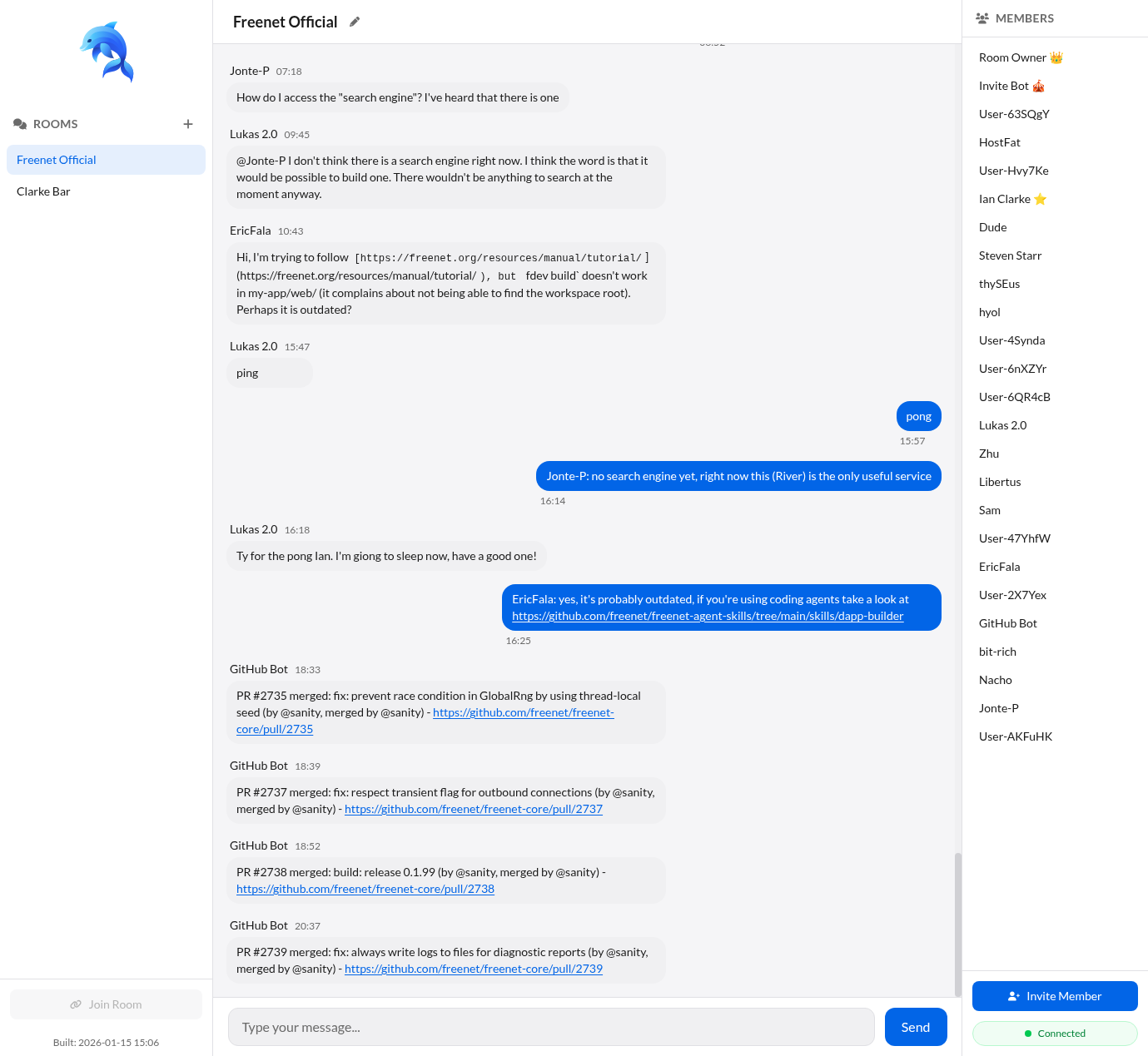Freenet is a peer-to-peer platform for decentralized applications—communication, collaboration, and commerce without reliance on big tech. Your computer becomes part of a global network where apps are unstoppable, interoperable, and built on open protocols.
See it in Action
River is a decentralized group chat built on Freenet. No servers, no signups—just encrypted conversations that work even if we disappear tomorrow.

For Users
Freenet apps run in your browser and look like normal websites—but they can’t be taken down, don’t track you, and work without any company behind them.
For Developers
Build apps with familiar tools (Rust, TypeScript) that deploy to a global network. No servers to maintain, no cloud bills, no terms of service.
News
Loading news...
Video Talks · Matrix Chat · GitHub · FAQ